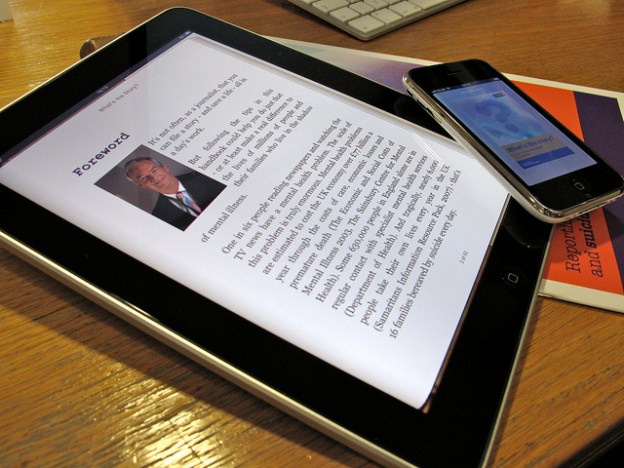Holtzbrinck Publishers LLC, better known to readers in the United States as Macmillan, has become the fifth and final publisher to reach a settlement with the U.S. Department of Justice over the collusion to artificially set pricing for e-books.
Macmillan had been the sole remaining publisher in the lawsuit the D.O.J. had brought against Apple and the five largest publishers in the U.S. – Hachette, HarperCollins, and Simon & Schuster had all agreed to settle in April of last year, and Penguin following suit in December. The publishers had been accused of conspiring with each other and Apple to set the price of e-books on Apple’s iBookstore at a higher level than Amazon.com’s $9.99 baseline, a move that was in violation of federal anti-trust laws.
As part of the settlement, which will have to be approved by the court and is open to a 60-day period of public comment beforehand, Macmillan will be required to immediately lift any restrictions it had previously placed on the discounting of digital releases by retailers. It will also be legally restricted from entering into any new agreement with similar restrictions until December 2014 at the earliest. In addition, the publisher will be required to ask permission of the D.O.J. to enter into collaborations with other e-book publishers, as well as provide the department with regular reports as to any discussions with any other publisher as matter of course.
The terms of the settlement go further than simply reporting on discussions, however. “As a result of today’s settlement, Macmillan has agreed to immediately allow retailers to lower the prices consumers pay for Macmillan’s e-books,” Jamillia Ferris, Chief of Staff and Counsel at the Department of Justice’s Antitrust Division, said in the official D.O.J. announcement, adding “Just as consumers are already paying lower prices for the e-book versions of many of Hachette’s, HarperCollins’ and Simon & Schuster’s new releases and best sellers, we expect the prices of many of Macmillan’s e-books will also decline.”
Previous publishers who have settled on this matter have also put money towards a fund from which customers who bought e-books at the artificially-set price could receive some form of financial renumeration. Whether or not Macmillan will be adding money towards this purpose is not broached in the D.O.J. announcement.
With Macmillan settling, only Apple remains as a defendant in the upcoming court case over this issue; the company’s trial is set to begin in June this year. The issue at hand is not whether the companies conspired to set prices, but whether the act of doing so was technically illegal. If Apple doesn’t settle ahead of time, expect arguments as to why colluding over prices isn’t actually illegal at all.
Image Credit: Flickr/shiftstigma



